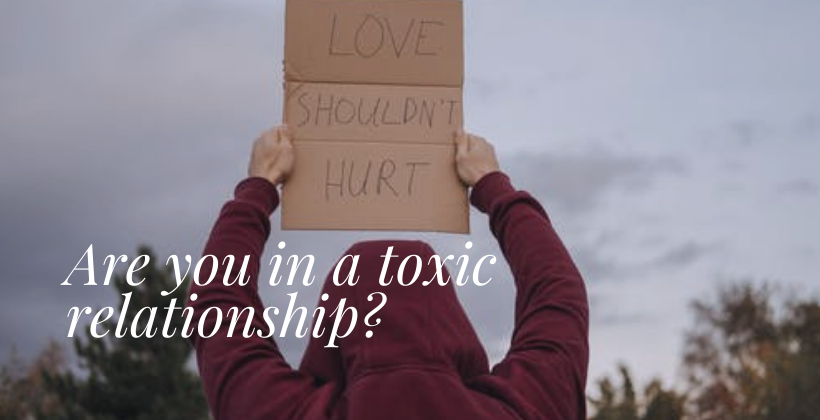Learn how to know if you are in a toxic relationship and more importantly, what to do about it.
Our relationships with other people can have a big impact on our mental health. When we have healthy relationships, we’re more likely to feel positive and confident. When we have unhealthy relationships, we’re more likely to feel negative and insecure. This is the case whether it’s your relationships with your parents, friends, a girlfriend or boyfriend, or even with professionals we interact with regularly, like teachers or therapists.
The difference between healthy and unhealthy relationships
Every relationship can have ups and downs or go through times of difficulty. But if you find there are more negatives than positives in your relationship with someone, then it might be time to think about whether or not it’s a healthy one.
Being able to tell the difference between healthy and unhealthy relationships helps us to evaluate our own relationships with other people. If you think you might be part of an unhealthy relationship, it’s important to take steps to deal with this, even if this means removing yourself from the relationship entirely.
When relationships become unhealthy
An unhealthy relationship is a relationship that is bad for you. Instead of bringing feelings of security and happiness to your life, an unhealthy relationship can bring you sadness and worry. It is usually full of ups and downs. If you are in an unhealthy relationship, you may feel ecstatic and extremely happy one day, and utterly devastated the next.
This can be the case whether you’re in a romantic relationship with someone, or whether they’re someone you consider a close friend. Even the closest friendships can turn a bit sour sometimes.
Signs that a relationship or friendship is unhealthy:
- They constantly put you down and make you feel bad about yourself.
- You are arguing one day, and things are great the next.
- They often make you feel guilty.
- They are jealous of your other friends.
- You feel like it’s your responsibility to fix things.
- You change yourself to please them.
- You worry about setting them off and feel like you have to watch what you say.
- You feel anxious or unwell when you know you’re going to see them.
- They text and call you constantly.
- You have lost confidence in yourself.
- They break your trust.
Conclusion
Toxic relationships are characterized by a lack of trust, controlling behaviours, and frequent lying. Often one partner is prioritized instead of coming together as a team. While toxic relationships can, at times, be healed, both partners must be willing to adapt and work on the relationship.
However, if you are in an abusive relationship and are able to, contact a loved one for support and assistance making an exit plan. Moreover, there is absolutely nothing wrong with you for being in an abusive relationship, and anyone who shames you is in the wrong.
Try to bring your full self into a relationship, and that includes your intuition. Trust in yourself to make a decision that will benefit your well-being not only in the short term but longer-term as well.

